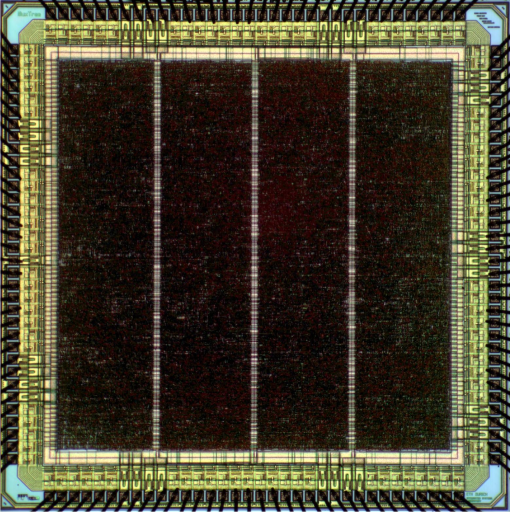The IIS Chip Gallery
MuxTree (2000)

by

| Application | Processor |
| Technology | 600 |
| Manufacturer | austriamicrosystems |
| Type | Semester Thesis |
| Package | PGA144 |
| Dimensions | 5200μm x 5200μm |
| Voltage | 3.3 V |
Embryonics is a long-term project at EPFL which investigates the use of biological concepts and mechanisms in the design of digital hardware. In the framework of this project, a dedicated FPGA architecture (MuxTree) has been developed, basically consisting of a two-dimensional array of small configurable elements (so-called molecules) and cellular automata.
Key features of this architecture are self-replication and self-repair. The former operates by logically partitioning the chip into a set of square blocks of programmable size and automatically replicating the configuration of a single block into all of the blocks. The self-repairing mechanism, which is in most cases completely transparent to the user, is based on redundancy (for fault-detection) and reconfiguration (for repair).
In this student project, a MuxTree chip with 64 molecules has been implemented. Dedicated highspeed interfaces on all four edges allow to connect multiple chips to form an arbitrarily big, uniform array of molecules. Furthermore, in order to test the online self-repair mechanism, fault injection circuitry has been added. The chip is fabricated in 0.6 um 3LM CMOS and has a die area of 27 mm2.